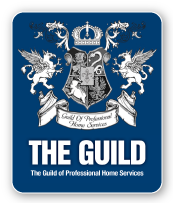

- New Construction & Residential Resale
- Property Management & Maintenance
- Commercial Sales & Leasing
- Condominium Agreements
Calculating your monthly housing budget
Your monthly housing budget is the amount you have to live, finance and heat your future home, after you have fulfilled all your other normal obligations. To do this, use current data that will not change when you are a new homeowner: your net household income, your debts (student loan, car loan, and so on) and your current living expenses (food, clothing, insurance, miscellaneous expenses, and so on).
The difference between your net household income and your total monthly expenses is your monthly housing budget. This amount must cover your mortgage pay- ment (principal plus interest), taxes, heating costs and condominium fees, if applicable.
Remember that a budget is only useful if it reflects reality. Your budget, more than the methods used to calculate your monthly payments, will help you determine your maximum mortgage loan.
How much can I afford to invest in a home?
Analyzing your financial capacity
Before you start looking for a new home, you should conduct an analysis of your needs and an accurate evaluation of your financial capacity. You must establish a realistic budget that accounts for your lifestyle and your goals. The purpose of this exercise is to set a reasonable purchase price. This way, you can narrow down your search and avoid being tempted by real estate that is above your means.
The key element in this exercise is accuracy. Remember that a budget is only useful if it accounts for your overall needs and personal or family situation.
Estimating your maximum mortgage
A simple way to estimate the maximum mortgage you can get is to multiply your gross annual salary by two (see Table 1). Note that most mortgage lenders calculate this by multiplying the gross annual income by 2.5. However, it is more reasonable to multiply it by two to avoid overextending yourself on mortgage payments. You should consult your banker or financial planner to get more ac- curate information as to what you can afford. This process is called mortgage pre-approval.
How much financing do I need?
One of the main concerns of real estate buyers is mortgage financing. To determine the amount you will need to borrow, you have to know the purchase price of the property and the total expenses you will need to pay in cash. The summary of these calculations enables you to determine the amount of financing you need to purchase your home.
Cash expenses
You have to plan for several cash expenses when buying a home. These costs must be estimated to determine the amount you need to borrow to finance the purchase of your new home.
Deposit
When presenting an offer to purchase, you will need to make a deposit to prove your legitimacy as a buyer. For that, you have to plan on a cash outlay.
Down payment
The down payment is without a doubt your main expense when buying a home. A higher down payment means lower monthly mortgage payments. If your down payment is less than 25% of the purchase price, your mortgage loan must be insured by high-ratio mortgage insurance such as that provided by CMHC. There are administration fees involved for the application. Yo also have to plan on legal fees and an insurance premium, which is a percentage of the loan amount.
Related expenses
Several related expenses must be taken into consideration when buying a home, such as building inspection, property appraisal, loan application, legal fees and disbursements, property taxes, deed transfer tax, fuel adjustment, insurance, and so on.
 home
home
 contact
contact
 Buyers
Buyers
 Sellers
Sellers
 Hrmrealestate Homemove
Hrmrealestate Homemove


